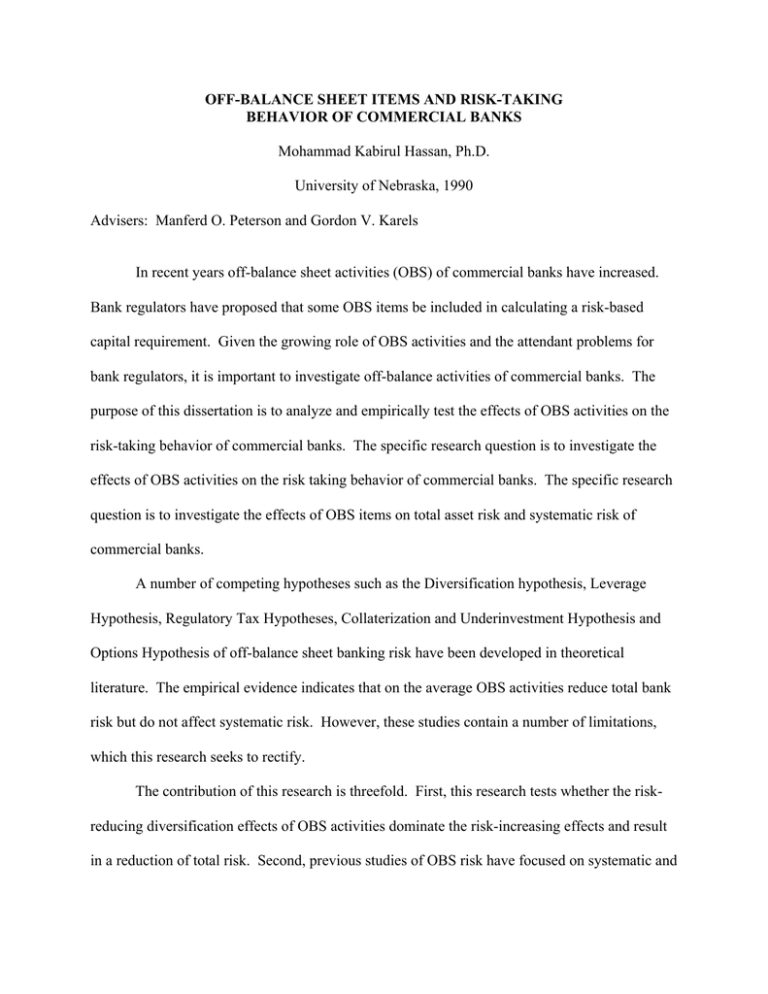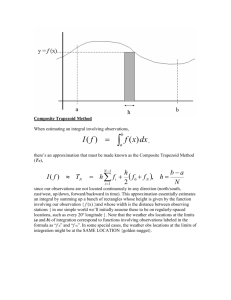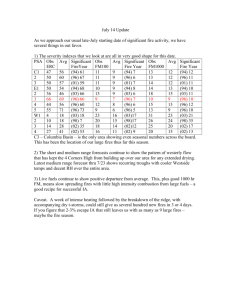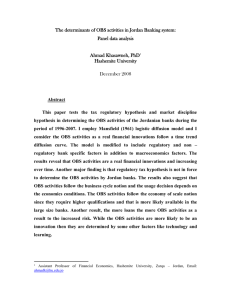OFF-BALANCE SHEET ITEMS AND RISK-TAKING BEHAVIOR OF COMMERCIAL BANKS
advertisement

OFF-BALANCE SHEET ITEMS AND RISK-TAKING BEHAVIOR OF COMMERCIAL BANKS Mohammad Kabirul Hassan, Ph.D. University of Nebraska, 1990 Advisers: Manferd O. Peterson and Gordon V. Karels In recent years off-balance sheet activities (OBS) of commercial banks have increased. Bank regulators have proposed that some OBS items be included in calculating a risk-based capital requirement. Given the growing role of OBS activities and the attendant problems for bank regulators, it is important to investigate off-balance activities of commercial banks. The purpose of this dissertation is to analyze and empirically test the effects of OBS activities on the risk-taking behavior of commercial banks. The specific research question is to investigate the effects of OBS activities on the risk taking behavior of commercial banks. The specific research question is to investigate the effects of OBS items on total asset risk and systematic risk of commercial banks. A number of competing hypotheses such as the Diversification hypothesis, Leverage Hypothesis, Regulatory Tax Hypotheses, Collaterization and Underinvestment Hypothesis and Options Hypothesis of off-balance sheet banking risk have been developed in theoretical literature. The empirical evidence indicates that on the average OBS activities reduce total bank risk but do not affect systematic risk. However, these studies contain a number of limitations, which this research seeks to rectify. The contribution of this research is threefold. First, this research tests whether the riskreducing diversification effects of OBS activities dominate the risk-increasing effects and result in a reduction of total risk. Second, previous studies of OBS risk have focused on systematic and equity risk and hence did not explicitly incorporate the impact of regulation on bank risk measurement. This study overcomes this problem by using asset risk that incorporates the impact of deposit insurance and regulatory closure rules for the regulated banking industry. Here, the Ronn-Verma option pricing methodology (1986) is employed to calculate implied asset variance. Third, the “Market discipline” of OBS banking activities has been reexamined by using a contingent claims valuation to derive an explicit pricing model which incorporates regulatory closure rules for bank subordinated debt. The Gorton and Santomero (1989) subordinated option pricing methodology is employed to calculate implied asset variance. Various measures of asset risk are regressed over on and off-balance sheet variables to explain the risk-reducing effects of OBS banking activities. This dissertation provides additional evidence concerning the effects of OBS activities on risk-taking behavior of commercial banks. An examination of risk-taking behavior of offbalance activities in commercial banking aids our understanding of the existing policy proposals to regulate off-balance sheet banking.






